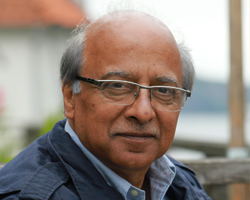Imtiaz Gul

Australia’s acting Immigration Minister Alan Tudge recently announced that all those thousands of Hong Kong geopolitics Australian citizens who were currently in Australia will be given the chance to apply for permanent residence once their Australian visa expires.

This statement came as a big surprise to many as hong kong geopolitics Australian visa regime and citizenship laws are among the most stringent in the world, especially for immigrants from non-European and Asian backgrounds. According to a report published last year, Australia’s Minister for Home Affairs Peter Dutton cut down on partner visa numbers, which created a backlog of 80,000 applications. This was clearly against the spirit of Australia’s Migration Act. Majority of the applicants, married to Australian nationals, come from South Asia and the Middle East, many of whom have been waiting for settlement of their applications for permanent residence or citizenship.
Clearly, a discriminatory move that betrays inherent systemic biases against Asian immigrants as well as the double standards driven by geopolitics.
And if geopolitics were any guide, we should not be surprised.
Australia is part of the four-nation Quadrilateral Security Dialogue (also known as the Quad). The United States, Japan, and India are other members of the alliance that can be described as the extension of the US-led geopolitical chessboard in the Indo-Pacific region. Almost all the stakeholders of this partnership are wary of China’s growing footprint on the maritime security and freedom of navigation in the region – primarily a China-focused partnership in the Indo-Pacific region.
This is also evident from the fact that even with the devastation the coronavirus has caused in the world, Hong Kong has made many more headlines in the USA, the UK and Australia in particular than on COVID19.
The three major western powers had been pushing an “ideologically political” narrative against China and the democracy protests in Hong Kong provided them with a golden opportunity to up the ante against Beijing. They were all up in arms after China enacted a new security law early this month, followed by intermittent expression of concerns on the situation in Hong Kong.
But the paradox is clear; hyped up concerns about residents of Hong Kong but disregard for pending applications by Asian and African immigrants currently in Australia. This invariably exposes the double standards that these western powers apply to citizenship laws according to their geopolitical interests.

“We made clear that if China continued down this path we would introduce a new route for those with British National Overseas status to enter the U.K., granting them limited leave to remain with the ability to live and work in the U.K. and thereafter to apply for citizenship — and that is precisely what we will do now,” said British Prime Minister Boris Johnson, responding to China’s introduction of national security law.
Similarly, US Secretary of State Mike Pompeo has said that the US was considering “letting people who no longer feel comfortable in Hong Kong move to the US”.
Johnson, as well as Mike Pompeo, while criticising Beijing for its new law on Honk Kong, also glossed over the draconian homeland security legislation that both US and UK enacted in the aftermath of the 9/11 terrorist attacks.

Johnson’s critics also reminded him of the infamous “Windrush Scandal” which revealed how elderly citizens from the Caribbean islands – who came to the UK between 1948 and 1971 to meet the labour shortage – were wrongly deported, detained and denied rights.
Similarly, Pompeo’s statement was also ironic as US President Trump ran his whole election campaign on the promise of “America First” and putting an end to immigration. Moreover, it was under President Trump that the infamous “Family Separation Policy” was implemented between 2018 and 2019, where federal authorities separated children from their parents or guardians with whom they had entered the US.
These statements coming from major western powers also beg the question; Why not then take the endless talk on human rights and “concerns” for democracy in Hong Kong and Xinjiang with a big pinch of salt? Even Beijing has snapped back at this western campaign against it.
“Xinjiang is entirely the internal affair of China, and the US has no right to interfere. The Chinese government’s determination to protect its sovereignty and crackdown against terrorism, separatism and extreme religious forces is unshakeable,” foreign ministry spokeswoman Hua Chunying said on July 13 when announcing tit-for-tat sanctions against US Ambassador at Large for International Religious Freedom Samuel Brownback, US Senators Marco Rubio and Ted Cruz, US Representative Chris Smith as well as the Congressional-Executive Commission on China.



